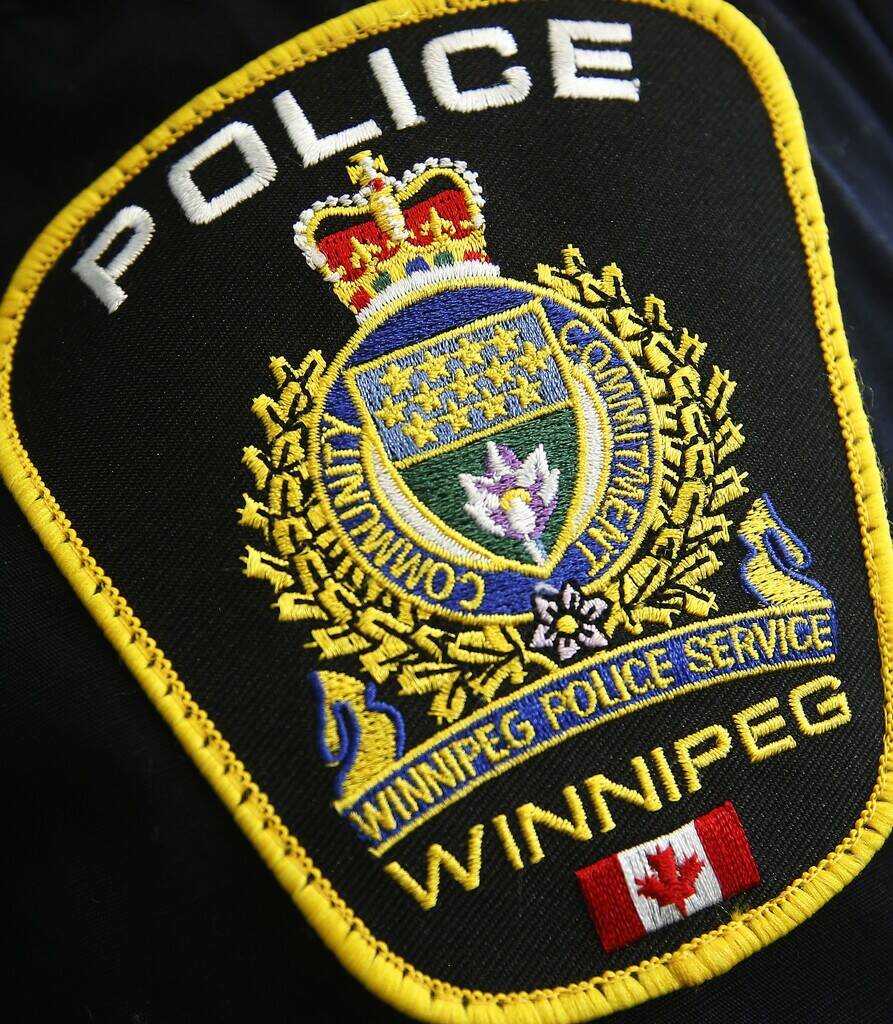Police conduct code long overdue
Read this article for free:
or
Already have an account? Log in here »
To continue reading, please subscribe:
Monthly Digital Subscription
$0 for the first 4 weeks*
- Enjoy unlimited reading on winnipegfreepress.com
- Read the E-Edition, our digital replica newspaper
- Access News Break, our award-winning app
- Play interactive puzzles
*No charge for 4 weeks then price increases to the regular rate of $19.00 plus GST every four weeks. Offer available to new and qualified returning subscribers only. Cancel any time.
Monthly Digital Subscription
$4.75/week*
- Enjoy unlimited reading on winnipegfreepress.com
- Read the E-Edition, our digital replica newspaper
- Access News Break, our award-winning app
- Play interactive puzzles
*Billed as $19 plus GST every four weeks. Cancel any time.
To continue reading, please subscribe:
Add Free Press access to your Brandon Sun subscription for only an additional
$1 for the first 4 weeks*
*Your next subscription payment will increase by $1.00 and you will be charged $16.99 plus GST for four weeks. After four weeks, your payment will increase to $23.99 plus GST every four weeks.
Read unlimited articles for free today:
or
Already have an account? Log in here »
Hey there, time traveller!
This article was published 22/03/2022 (1358 days ago), so information in it may no longer be current.
It may come as a surprise to many that Manitoba does not have a province-wide code of conduct for police officers. Most other provinces do. Manitoba has had the authority under the Police Services Act since it was passed in 2009 to establish formal rules around policing activity, including mechanisms to respond to allegations of officer misconduct. For reasons neither the former NDP or current Progressive Conservative governments have explained, none was ever put in place.
What Manitobans are left with is a patchwork system that differs from one municipality to the next. It is neither open and transparent nor does it provide the public with an effective process to hold police officers accountable for their actions. Some allegations of non-criminal misconduct are heard by the province’s Law Enforcement Review Agency. However, most complaints made through LERA (a process that has been widely criticized as dysfunctional and ineffective), rarely receive full hearings and almost never result in officer discipline. Allegations of criminal behaviour are investigated through the province’s Independent Investigation Unit.
Manitoba bill would set policing standards

Posted:
Police officers in Manitoba could be subject to a blanket code of conduct and set of policing standards under new legislation proposed by the Progressive Conservative government.
Justice Minister Kelvin Goertzen says the province intends to create a new set of rules that will govern the conduct of all police officers in the province. The minister introduced Bill 30 last week, amendments to the Police Services Act, which among other things restates government’s ability to establish a province-wide code of conduct.
The wording in the bill is similar to what already exists in the act. The difference now, at least according to Mr. Goertzen, is there is a stated intention to move forward on creating a province-wide code, although it remains discretionary under the proposed legislation.
Under Bill 30, the province’s director of policing “may” establish a code of conduct that would apply to all police officers in the province, except the RCMP, which has its own rules of conduct.
There are few details in the bill beyond that, other than a requirement that if an officer contravenes the code, the findings – including any disciplinary actions – must be reported to the province’s director of policing.
The code of conduct itself has not been established. Also, the bill does not specify a process, including how investigations would be conducted or by whom. There are no assurances in the bill that alleged wrongdoing would be investigated by an independent body, nor whether the findings would be made public.

The expectation is those and other details would be established by regulation and approved by cabinet. It is not unusual for legislation to be written in broad language with greater detail specified through orders-in-council. However, the less detail there is in proposed legislation, the less public scrutiny it receives before it becomes law. Bills go through a public process (including public hearings for most bills in Manitoba) and are voted on by elected members of the legislative assembly. By contrast, regulations are made behind closed doors by cabinet and are subject to change without approval of the legislative assembly.
There are valid reasons in some cases for doing so, including the need to update regulations in a timely manner. Still, that should not be an excuse to deprive the legislative assembly of its primary role of examining, debating and voting on proposed laws that include as much detail as possible.
Mr. Goertzen said last week he expects progress to be made on the development of a code of conduct by 2023. However, that should not be done behind closed doors. It should be subject to an open and transparent process.
A province-wide code of conduct for police is long overdue. The public and all stakeholders should be invited into the process to determine its contents.








